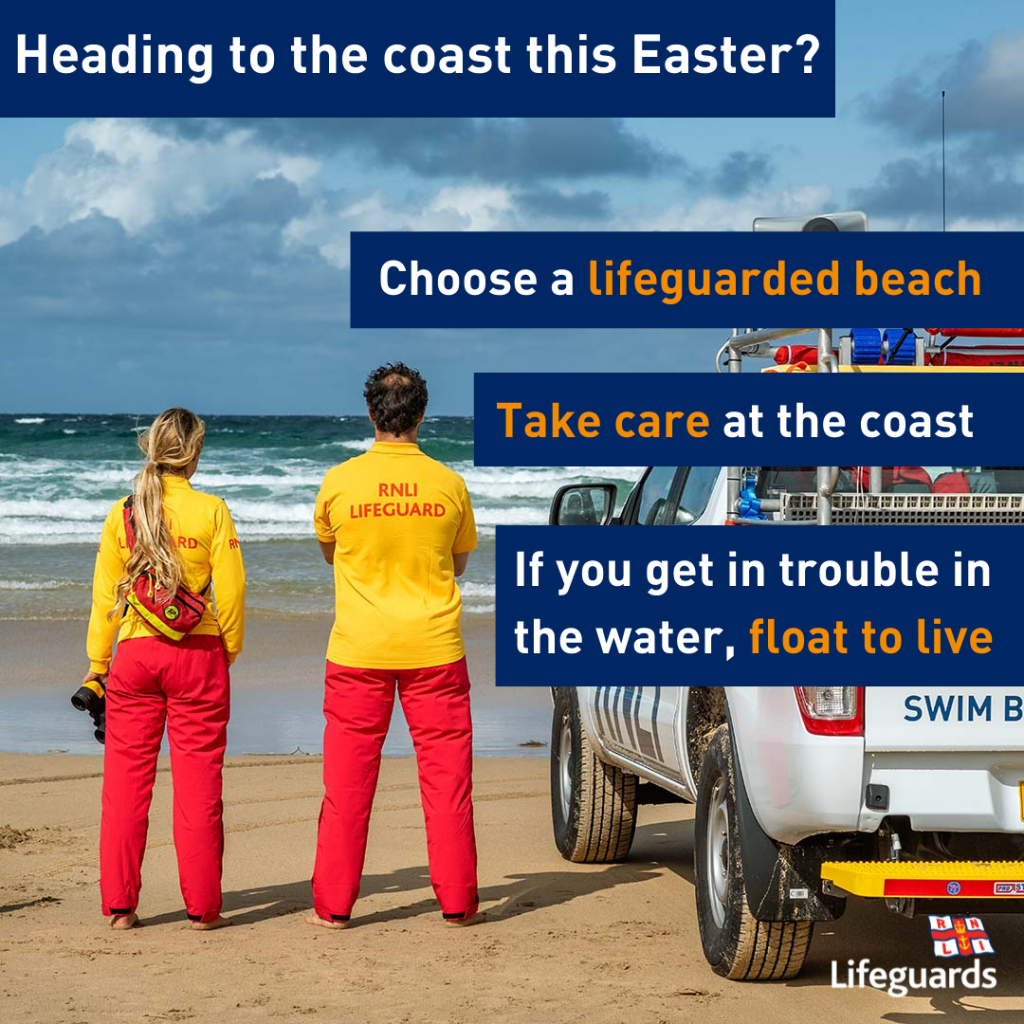New data shows there will be a record breaking need for summer summer lifesavers on NI beaches
The RNLI has revealed lifeguard statistics from 2021 which show more people than ever visited a lifeguarded beach in Northern Ireland and needed the help of the charity’s lifesavers.
During the season, lifeguard teams located on 11 beaches along the County Down coast to the Causeway Coast responded to 330 incidents, coming to the aid of 384 people, one of whom was a life saved. The lifeguards carried out thousands of preventative actions over the summer period which saw an estimated 860,883 visitors to the beaches.
The latest figures come as RNLI lifeguards train and prepare to return to beaches for the 2022 season.
The range of people and activities lifeguards responded to included paddleboarders, body boarders, swimmers, jet-skiers, those spending time relaxing or walking, quad bikers, kayakers, surfers, paddlers and those on inflatables.
Every year, RNLI lifeguards are involved in carrying out water rescues, administering casualty care, delivering water safety information, and helping to reunite missing children with their families.
Over the past few weeks, they have been training and practicing their skills so that they are ready to face what the upcoming season brings.

The RNLI will carry out its usual lifeguard service this year across Northern Ireland in its standard phased approach. The first set of beaches will go on service from this Good Friday, 15 April, for the Easter holidays.
Lifeguards will patrol beaches at Benone, Portrush East Strand, Portrush West Strand, Whiterocks and Ballycastle from 11am to 7pm and Portstewart from 10am-6pm daily until Sunday 24 April.
A weekend service on these beaches will commence on Saturday 30 April and will run until the peak daily season starts on Saturday 25 June.
Meanwhile, a weekend service on Tyrella Beach in county Down will start from 10am to 6pm on Saturday 30 April.
Speaking ahead of the Easter lifeguard service commencing, Karl O’Neill, RNLI Lead Lifeguard Supervisor said: “RNLI lifeguards are at the forefront of the charity’s lifesaving work, as they keep beach visitors safe across the Causeway Coast and in county Down each year.
“Last year’s figures show the importance of our lifeguards and what they do for the public. We are expecting coastal areas to be just as busy in the summer season ahead.
“The RNLI has been working closely with partners and local communities to ensure beaches and lifeguard units are ready and equipped, and that lifeguard training has been performed seamlessly.
“Pre-season preparations have gone well, and our lifeguards are ready to get back on to the beaches and do what they do best; offering preventative safety advice to visitors and rescuing those in difficulty in the water or on the beach itself.
“However, it is important to remember that our lifeguards can’t be everywhere. Our lifeguards will be supported by the charity’s 24/7 lifeboat service and water safety work, but we urge anyone visiting the coast to take responsibility for themselves and their family.”
Conard McCullough, RNLI Lead Lifeguard Supervisor added: ‘Heading to coastal waters is a great way to have fun and stay active, especially during the summer months. But weather conditions can change quickly and, if you’re not careful, you can easily get caught out.
“It is important that anyone visiting the coast understands the hazards of the environment. It can be an unpredictable environment, particularly during early summer when the risk of cold water shock significantly increases, as air temperatures warm but water temperatures remain dangerously cold. We would remind anyone entering the water to take extra care and avoid unnecessary risks as early season conditions are more challenging.
“Taking basic precautions can greatly reduce the risk of getting into difficulty and improve your chance of being found quickly should you need rescuing. With this in mind, we urge beach visitors to come dressed appropriately to ensure your visit is both safe and enjoyable. For activities like paddleboarding, we’d recommend you wear a wetsuit, as it will keep you warm in an emergency.
” Wearing an appropriate buoyancy aid or lifejacket is also vital as is carrying a means of calling for help such as a mobile phone in a waterproof pouch.’
The RNLI is urging anyone visiting the coast this Easter to make sure they keep themselves and their families safe by following beach safety advice:
- Visit a lifeguarded beach and swim between the red and yellow flags
- Check the weather forecast, tide times and read local hazard signage to understand local risks
- Keep a close eye on your family – on the beach and in the water – don’t allow your family to swim alone
- If you fall into water unexpectedly, float to live. Fight your instinct to thrash around, lean back, extend your arms and legs, and float.
- In an emergency, dial 999 or 112 and ask for the Coastguard.

























